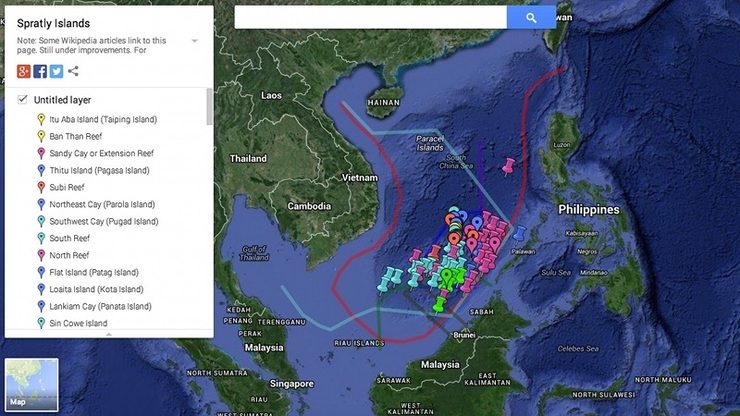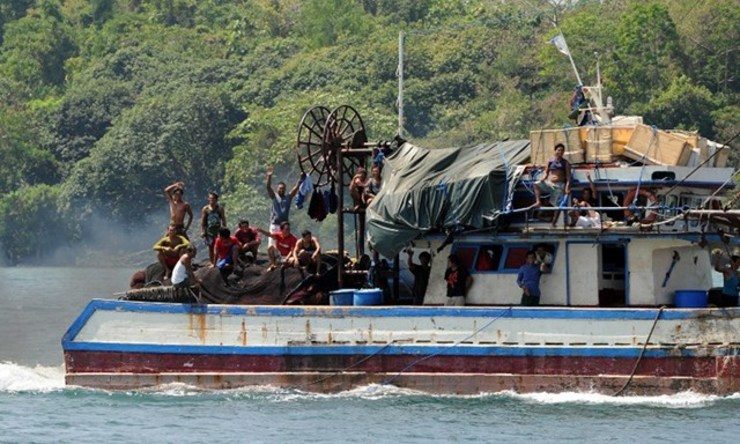SUMMARY
This is AI generated summarization, which may have errors. For context, always refer to the full article.

MANILA, Philippines – Why limit the discussion on the Philippines’ maritime claims to policymakers and experts?
The Philippines’ Department of Foreign Affairs (DFA) wants Filipinos to learn about the country’s marine resources at an early age by including the West Philippine Sea in the school curriculum for elementary and high school. Manila uses the term to refer to parts of the disputed South China Sea that it claims.
DFA Spokesperson Charles Jose told Rappler that the proposal will complement the Philippines’ legal strategy against China by harnessing education and information.
The Philippines filed a historic arbitration case against China before a tribunal to nullify Beijing’s controversial 9-dash line under the United Nations Convention on the Law of the Sea (UNCLOS). (READ: Rough seas: Will PH ‘lawfare’ work vs China?)
“Of course, students must learn about our maritime entitlements under UNCLOS because there is a threat that these will be diminished,” Jose said in an interview on Monday, January 5.
He was referring to China’s growing aggressiveness and claim of “indisputable sovereignty” over the South China Sea. The strategic sea is a major global shipping route, a rich fishing ground, and supposedly the site of vast deposits of oil and gas.
UNCLOS grants a 200-nautical mile zone within which coastal states like the Philippines have the exclusive right to explore and exploit natural resources like oil and fish.
“We are hoping for a positive outcome from arbitration but then, we should already start students young with this kind of information and education,” Jose said in Filipino.
Still, the assistant secretary said that the maritime dispute is not the sole focus of the planned curriculum.
“There are many things to be learned. The Philippines being an archipelagic country, Filipinos especially children should understand the wealth or our waters, and how dependent we are on the riches and resources from the sea,” Jose said.
Besides the Philippines and China, Vietnam, Malaysia, Brunei and Taiwan also have claims to the South China Sea. Hanoi refers to the waters as the “East Sea.”

‘Education, not brainwashing’
The foreign affairs spokesman said that the proposal is still in the initial stages, and it will be up to the Department of Education (DepEd) to develop the concept, and later on to teachers to craft their lesson plans.
He said the plan is to have the West Philippine Sea incorporated in subjects like geography and history.
‘We will not force students to think that the Spratlys, the Kalayaan Island Group, is ours. It’s more of an appreciation of marine wealth: how to use it, how to conserve, how to protect and how to manage.’
– DFA Spokesperson Charles Jose
Asked how the DFA came up with the idea, Jose said, “Here, there are many who do not appreciate our [marine] wealth. We said why not teach this so many will be informed?”
The Philippines is located at the apex of the Coral Triangle, an area marine ecologists recognize as a global center of marine biodiversity.
An Asian Development Bank (ADB) report shows that the coastal waters of this vast marine expanse “contain a wider range of species of corals, [fish], seagrass, and mangroves than anywhere else in the world.”
Millions of Filipinos depend on coral reefs for both food and income, including small-scale and commercial fishermen. The coastal ecosystems also contribute to the country’s tourism sector.
Jose said that the purpose of the proposed West Philippine Sea curriculum is to educate Filipinos, not to “brainwash” them to claim disputed reefs and shoals.
“We will not force students [to think] that the Spratlys, the Kalayaan Island Group, is ours. It’s more of an appreciation of [marine] wealth: how to use it, how to conserve, how to protect and how to manage,” Jose said.
“What’s more important is that people learn that the Philippines is made up of waters, a bigger proportion than land. So people should appreciate that,” he added.
The spokesperson said that the curriculum aims to teach students their responsibilities on marine and environmental protection.
“We want our marine wealth to be sustainable because the livelihood of 5 million Filipinos depend on this, depend on the waters and seas.”

Part of info campaign
Jose first brought up the proposed curriculum in the DFA’s nationwide information campaign on the Philippines’ maritime claims.
The department is conducting press briefings in key cities in the Philippines, with the first legs done in Olongapo City, Puerto Princesa, Palawan, and Iloilo last year, with more to be held this year.
In 2012, the Aquino administration officially renamed the South China Sea waters off the country’s west coast as “West Philippine Sea.”
Scholars have cited the value of education in promoting a strong tradition of nationalism in China, where the 9-dash line is “deeply engraved in the hearts and minds of the Chinese people.”
“The youth in China very early on are taught that these islands belong to them. If you go and look at the Chinese textbook, you will see these islands in their map,” former Ateneo Chinese Studies Program director Clark Alejandrino told Rappler in a previous interview.
“If you look at the DepEd textbook in the Philippines, most of them will not have the Kalayaan Island in them. It hasn’t been ingrained very strongly among the Filipino youth that these islands are a part of the Philippines,” Alejandrino added.
Supreme Court Senior Associate Justice Antonio Carpio, an expert on the maritime dispute, earlier called for a greater appreciation of the Philippines’ marine resources.
He said, “As Filipinos blessed by the Almighty with the extensive marine resources of an archipelagic State, we must be faithful to our duty as stewards of these marine resources – to protect and preserve these marine resources in our [exclusive economic zone] for the present and future generations of Filipinos.” – Rappler.com
Add a comment
How does this make you feel?
There are no comments yet. Add your comment to start the conversation.